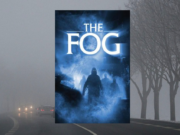 Psychiatrist Paul Mullen of Monash University
Psychiatrist Paul Mullen of Monash University
by Mary W Maxwell
According to the Merriam-Webster Dictionary, nosology is the branch of medicine that deals with the classification of diseases. I believe it is also used to refer to the art of diagnosing. In the same dictionary we find vexatious defined as “causing or tending to cause annoyance, frustration, or worry.”
So what do these words have to do with each other? Not much, in my opinion — but in the opinion of psychiatrist Paul Mullen, much. He thinks that a person who pursues her rights in court could thereby be showing symptoms of an illness. Or to put it crudely, a vexatious litigant is a nutter.
Indeed if you tap into PUBMED, the online pool of all medical journal articles (generously funded by the American taxpayer) you will find the following abstract by Paul Mullen:
Querulous paranoia was once of considerable clinical and academic interest in psychiatry. Over the last 40 years, however, it has virtually disappeared from the professional landscape. This decline occurred at the very time that a proliferation of complaint organizations and agencies of accountability were drawing more and more people into asserting their individual rights through the pursuit of claims and grievances. [Too right.]
Querulous behaviour, as a result, far from declining, is on the increase, bringing with it suffering for the querulous and disruption to the organizations through which they seek their vision of justice. [Their vision? Is “due process” a personal hallucination?]
This article examines querulous behaviour in the vexatious litigant and in abnormally persistent complainants and petitioners. The phenomenological and nosological issues are outlined and the risks of the emergence of threatening and violent behaviour is emphasized. [That’s the key: you become a safety risk to others if you push the rights idea.]
Threats should not be ignored, for a variety of reasons. Approaches to managing querulous behaviour in the courts and the complaint organizations are discussed, together with the utility of individual therapy. [Honest. There is a therapy for it.]
Those caught up in a querulous pursuit of their notion of justice are amenable to management that can ameliorate their suffering and reduce the disruption they create.
The Courts
You may have been under the impression that a person gets determined by a court to be vexatious. Correct. There is no doubt a possibility of a citizen creating a nuisance by filing for rights that don’t exist or for which he has already been turned down. The court can manage this problem.
I quote the New South Wales justice system on this matter:
(from supremecourt.justic.nsw.gov.au)
The court can make an order of its own motion or any of the following people can apply to have the order made:
(a) the Attorney General, either on their own or on the recommendation of a judicial officer, member or registrar of a court or tribunal,
(b) the Solicitor General,
(c) an appropriate registrar for the Supreme Court, Land and Environment Court or Industrial Court,
(d) a person against or in relation to whom another person has instituted or conducted vexatious proceedings,
(e) with leave of the court, a person who, in the opinion of the court, has a sufficient interest in the matter.
So is it a legal matter or a medical problem? The article I quoted earlier appeared in the journal Behavioral Sciences and Law in 2006 under the title “Vexatious litigants and unusually persistent complainants and petitioners: from querulous paranoia to querulous behaviour.”
The authors are listed as: Mullen PE(1) and G. Lester. Mullen’s address is shown as: Department of Psychological Medicine, Monash University and Victorian Institute of Forensic Mental Health, Thomas Embling Hospital, Locked Bag 10, Fairfield, Victoria 3078, Australia.
G Lester’s credentials are not shown. However he has addressed a committee of the Victorian Parliament using the title “doctor.” I am guessing that to be a PhD in psychology as I see he uses the following language in his Victorian paper:
Trower et all provide a cognitive framework to enable the teasing out of the cognitive processes underlying the querulous behaviors. Essentially this model has the elements of:
- Activating event
- Beliefs
These are made up of the four cognitions of images. Inferences, evaluations, and assumptions (dysfunctional). They are felt to have their origin in the early relationships of the individual. [“They are felt” my refer to, say, one’s PhD supervisor?]
Grant Lester says, in Section 3.2.2 of his presentation to Parliament:
“A complaint has as its genesis a belief of having suffered a loss caused by another. It may engender the emotions of dissatisfaction, sadness, and anger”
You almost feel sorry for the parliamentary committee having to listen to a lecture on how “people get pissed off when someone takes away their rights.
When discussing “the morbidly querulous” Lester Grant says:
The nature of the querulous means that they rarely if ever self-refer to psychiatric services for treatment.”
He does not define “morbidly querulous.”
Another writer, Stephen White, Ph.D., published “The Vexatious Litigant” in the Fall 2011 Newsletter of Work Trauma Services Inc. He helps us flesh out the kind of patient being referred to by Paul Mullen, MD:
“The company has refused to address my appeals and is hiding behind lies of eliminating my job due to a reorganization. This is patently false and I will show that the CEO himself is behind this conspiracy to silence me and trample on the rights of suffering employees. SOMEONE MUST CHAMPION THEIR CAUSE. LET IT BE ME! When the time is right I will reveal all the names of those behind this criminal conduct. Heads will roll in high places!!!”
The source is given as “From our case files.”
I guess I belong “the files” as I am admittedly having increasing visions of heads rolling these days. Sometines I even whisper “Let’s roll ’em.”
Whose Bailiwick Is It?
Yet another author, Benjamin Levy (Université Paris-7 Diderot and Paris-5 Descartes, Sorbonne Paris) published in the 2015 journal History of Psychiatry, a similar article entitled
“From paranoia querulans to vexatious litigants: a short study on madness between psychiatry and the law.” He says:
This study suggests that the lack of thorough research on querulous paranoia in [the English-speaking countries] is due to a broad cultural, legal and medical context which has caused unreasonable complainants to be considered a purely legal, rather than a medical issue. To support this hypothesis, I analyse how legal steps have been taken throughout the English-speaking world since 1896 to keep the unreasonable complainants at bay, and I present reasons why medical measures have scarcely been adopted.
He goes on to say that “this division of responsibilities between the judges and the psychiatrists has taken a new turn since the dawn of the twenty-first century.” Uh-oh.
Self-Diagnosis
Maybe we had better find out where we stand as possible nuisances. According to Mullen and Lester,
Querulous behavior, involves a
“totally disproportionate investment of time and resources in grievances that grow steadily from the mundane to the grandiose.”
I suppose my own investment of time and resources is disproportionate to something-or-other, but to what?
A friend in the US emailed me this very morning to say that he liked my remark, in the preface to my Marathon Bombing book:
Numerous kind souls are working hard to help Jahar Tsarnaev. I am not working to help Jahar. I am working to help me. I am sure I can see what’s in store for society if we play along with all the false statements in this case. I don’t want to be there!
Probably many “vexatious litigants” are inspired in the same way – to help society avoid disaster.
And here comes the safety factor again. Mullen says:
As Western society and organizations have expanded the opportunities and avenues for individuals to present or appeal grievances and pursue justice, a side effect may be the enabling of abuse. [!] In our experience these
individuals often reveal grand fantasies of their ultimate vindication unveiled dramatically at the highest judicial levels, accompanied by criminal punishment and public humiliation of their wrong doers. [Oops.]
Am I a Hazard?
Last month during Orientation week, I went down to the university campus – my university – two degree’s worth – to try to recruit actors for my Fringe show. A security guard chased after me and said I must not do this because of “the safety of the students.” She said there were complaints, but when I asked her to take me to the complainer she did not pursue it.
I assure you I felt really hurt about being told I don’t belong on the campus of the University of Adelaide. I doubt that the Security lady would understand this – she was just doing her job. But at least I know the game and did not “take it personal.” I took it political. Of course.
Surely this is what we have to look forward to, and more of same. When a tyrant can point in every case to the need for public safety, you end up in a Robespierre situation. It really is a powerful device that goes to the heart of people’s urge for – wait for it – security.
Any suggestions on how to counter this will be gratefully received in the Comments below.
Happily I can cite one. Bill Windsor, founder of the Lawless America series on Youtube, has recommended that only a jury be allowed to declare a person a vexatious litigant. I think this is only sensible, since a judge’s prerogative to dismiss the filing of a litigant on grounds of vexatiousness is a moral hazard.
Given that the litigant (think Mary Maxwell) may be wanting to litigate judicial corruption, wouldn’t it be better to let a jury decide if she is – or is not — off her trolley?
By the way, Bill Windsor has been charged with (non-existing) crimes and has been swallowed up into the prison system. He has not been heard from in 2 years. If you are reading this, Bill, Yo! You are not forgotten.
— Mary Maxwell describes the Bill Windsor situation in her book Fraud Upon the Court, which can be read, page by page, at Google books or ordered from shops or borrowed at libraries
Photo credit: bit.ly






























Psychiatry is a field that has sought to disempower “undesirable” people from its beginning and, in my opinion, to one extent or another, so has “the law.” Although despicable, it’s not surprising that the two would join forces against ordinary people to prevent justice using a psychiatric excuse.
What could be more vexatious than to deprive someone of their rights? So, what Mr. Mullen believes is that it is more proper and reasonable for someone to be accepting of injustice than to seek a legal remedy for possible wrongdoing against himself or herself or another. But it’s apparently a one-sided proposition because the vexation caused to the litigant by the judicial system is not considered at all. I’m not sure what you’d call this system, but you couldn’t call it a democracy.
Is there any chance that by going through administrative channels you would have been given the opportunity to speak with students who may be interested in your production?
Although it makes more sense to have a jury rather than a judge make a determination about whether a litigant should be labeled vexatious, I’m not sure I’d want to put my trust in a group of citizens who may or may not have cognitive and/or empathy deficits.
I’m going to find out about Bill Windsor since I’m not familiar with his work.
Mary, I was thinking about booking an appointment with a psychiatrist to help me with my ODD (Oppositional defiant disorder). Do you think Dr Mullen would be of any assistance?
Defo.
Dee I looked up the pronunciation of defo and was surprised to find that the accent is on the second syllable.
Learnt it from our Cherri who is defo dinki di.
Go ye forth to Bill Windsor, Spec — a most important person. It is tricky to follow the chronology of his imprisonments. But be sure to find the dozens of videos of his interviews withe the Not-Yet-Vexatious.
https://www.youtube.com/user/lawlessamerica
Is this Mullen theory supported by a single case or are we just supposed to BELIEVE?
Was that “security lady” “just doing her job” or was she just acting as a good law-of-the-jungle party member ? Where’s the authorisation? I can’t see how any sort of attempt to block procedural abuses from being bought to light could be anything but lawless
So the same Mullen was employed by John Avery ?
http://kildall.apana.org.au/autism/articles/bryant.html
Well that certainly adds up
The self same, Berry dear.
i hear he is also advising on the Bourke St rampage.
Might have known that all that gossip column rot about Martin Bryant was conjured up by a wannabe majician.One more reminder of how important it is to identify witchcraft
whatever the shape or form.
I correct myself, Berry. John Avery did not come aboard on Martin Bryant’s case till October 1996. The interview of the patient (aka the prisoner) took place on May 5.
At that point I think the solicitor was Debra Rigby but possible she had handed over to Davis Gunson by then.
Just hop a flight to Adelaide for the March 15 Fringe show at 3pm in the Burnside Library and all will be revealed.
Satisfaction guaranteed or your airfare money back, Berry.
wow, that bloke could make a lot of money writing fiction like that.
I feel sad reading this.. which is a problem apparently.
fancy getting chased off a university, for trying to educate people. security guard, pffft.. just doing their job, just following orders? I thought that excuse was no longer a legitimate justification for being an a-hole. should file a complaint for harrassment and sue her! 😀
… … … “Any suggestions on how to counter this will be gratefully received in the Comments below.”
1. gumshoenews to keep doing what it is doing ( thanks! )
2. wait for critical mass, in the meantime procure pitchforks
3. revolt
I followed yr link above, Fair, and I say Reclaim sadness!
Go, melancholy. Go, blubbering.
I could use a good blubber.
(Watch out or I’ll find a song.)
https://www.youtube.com/watch?v=–DbgPXwLlM
Swearda God, Fair, I was thinking of The Boxer.
Is “querulous” a Soviet Russian word?
Do these people actually think these kinds of things or are they so warped in the head they see and enemy on every street corner?
Perhaps he’ s being forced under the theat of severe pain to invent such a theory.
Is there such a thing as an opposite syndrome among academics, particualry those who have lost touch with reality due to mential illness or degredation?
Does an insane person ever question their own sanity?
asking for a friend.
Sometimes early on, they wonder what’s going on, but then things take a hold. One of the medical terms used at assessment is to ask if they demonstrate insight.
thanks Paul.
I was afraid of so much.
Kevin, I susbscribe to Option 2 on your list.
But after Option 2 is working, then perhaps Option 1 falls into place.
As for “opposite syndrome” I don’t know what you mean.